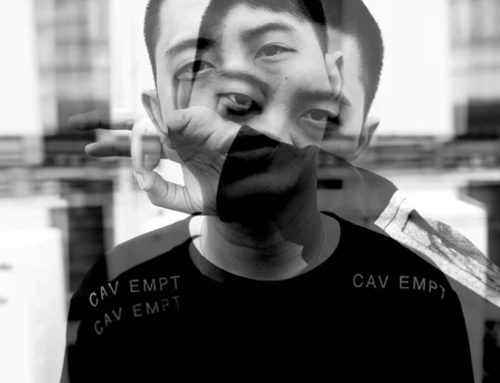What exactly does a therapist do? Is therapy only for people with severe mental illness, like bipolar disorder? In this Psych Central Podcast, we welcome therapist Clay Cockrell, LCSW, who clears up any misunderstandings about therapy and explains why therapy can be good for anyone in mental pain or who simply needs to talk. Click on the player below to listen now!
SUBSCRIBE & REVIEW
Guest information for ‘Clay Cockrell – Therapy’ Podcast Episode

Clay Cockrell, LCSW is a therapist based in New York City and is the founder of several counseling-oriented endeavors.
Most recently he is the founder of Onlinecounseling.com – a listing directory with the mission of helping clients all over the world to find the therapist or life coach that will best meet their needs
Clay started his career as the creator of Walk and Talk Therapy (www.walkandtalk.com). Instead of meeting in a traditional office, he conducts counseling sessions while walking through Central Park in New York.
Clay’s most recent endeavor is his podcast: Finding Therapy. In it, he has created a step by step guide to the process of finding a therapist – making a complicated process simple and easy to understand. Each episode will explore the specifics of different types of therapists for each mental health need.
Originally from Kentucky, Clay moved to New York City with his wife in 1997. He has been featured on ABC’s Good Morning America, CBS’s The Doctor’s, CNN and National Public Radio’s Wait, Wait, Don’t Tell Me and in the New York Times, The Wall Street Journal, WebMD, and The Times of London.
Computer Generated Transcript for ‘Clay Cockrell – Therapy’ Episode
Editor’s Note: Please be mindful that this transcript has been computer generated and therefore may contain inaccuracies and grammar errors. Thank you.
Announcer: You’re listening to the Psych Central Podcast, where guest experts in the field of psychology and mental health share thought-provoking information using plain, everyday language. Here’s your host, Gabe Howard.
Gabe Howard: Hello, everyone, and welcome to this week’s episode of the Psych Central Podcast. Calling into the show today, we have Clay Cockrell, LCSW. Clay is a therapist based in New York City and founder of OnlineCounseling.com, a listing directory with the mission of helping clients all over the world find a therapist or life coach. And he’s also the host of the Finding Therapy podcast. Clay, welcome to the show.
Clay Cockrell, LCSW: Thanks, Gabe. It’s great to be here.
Gabe Howard: Well, I am very glad that you’re here and obviously with an introduction like that, a therapy podcast, a therapy directory, you being a licensed therapist. Shocker. We’re going to talk about therapy.
Clay Cockrell, LCSW: Great. That’s my sweet spot.
Gabe Howard: I think that therapy is one of those things that everybody has heard of. I think you would be hard pressed to go out in public and say, hey, have you ever heard of therapy and get somebody to say no. What is that? And yet, even though everybody has heard of therapy, a lot of people have a lot of misunderstandings about therapy. Why do you think that is?
Clay Cockrell, LCSW: I think it’s popular culture. You see it on television, even back so far as the 70s with what was it? The Bob Newhart Show. And I think that people think that therapy is going to be three times a week and lasts forever and ever. And unless you’ve experienced it, there’s just a lot of misconceptions about it, that they’re going to solve all your problems in a couple of sessions or they’re never going to solve any of your problems forever and ever.
Gabe Howard: The big thing that I get out in public is that, well, therapy doesn’t work, it’s just sitting there talking. I don’t need to pay somebody a hundred dollars to listen to my problems. I can go to the bar, go to the sewing circle, talk to my friends. Those are the ones that I hear most often in my own family. My mother, who I love dearly, always says that she does not need therapy because she’s an open book and she’ll talk to anybody. So for my mom and for everybody who thinks like my mother. Can you explain why being an open book or being willing to talk to everybody is not a replacement for therapy?
Clay Cockrell, LCSW: Yeah, and I’m going to be talking to my mom, too.
Gabe Howard: Moms are wonderful, but it doesn’t mean that they don’t believe things that are incorrect.
Clay Cockrell, LCSW: That’s right. That’s right. I always say that when you put a vocabulary around your inner world, you put words around it and you speak it to someone who is trained. That is therapy. And it helps you understand what is going on a little better. And the process of talking with someone who comes to this dedicated time with no judgment, you can say anything. Even people who say they’re an open book. Well, no, not really. We all keep private things. This is a place where, you know, everything is secret. It’s confidential. And their entire goal is to help you with the latest techniques, with education and acceptance. And that’s the beautiful thing that you’re going to be accepted for, what or who you are and what’s going on in your life. And that acceptance, that understanding and hopefully some direction. There’s therapy styles that give exercises and homework and trying to move you forward with whatever internal pain that you may be going through. That’s what therapy is. And that’s why it’s a little different than talking to your buddy at the bar or talking to your friends at home.
Gabe Howard: And nobody’s saying not to talk to your buddy at the bar or your friends at home or the so-and-so. I mean, it’s you can do two things or three things or four things. I think that that’s another misconception, right. That therapy is somehow a replacement for coping skills or something else that you might be doing. And that’s not necessarily the case. Right?
Clay Cockrell, LCSW: Absolutely. It’s incredibly important for us to have community, to have friends and family member and connection. And that’s in addition to psychotherapy.
Gabe Howard: The final big myth you referenced pop culture. I’m not a therapist, and this one drives me nuts. This idea that you go into this dimly lit office with a lot of plants, there’s always a lot of plants for some reason.
Clay Cockrell, LCSW: Always a lot of plants. Yes.
Gabe Howard: There’s an old white guy. There’s always an old white guy. I don’t know why who is sitting on a chair, a leather chair, high back, usually with a pad of paper, and you, for reasons unknown. Lay down on a couch, and staring at the ceiling, talk about usually how much you dislike your mother. This seems to be the common thing that people picture when they think of therapy. How ridiculous is that?
Clay Cockrell, LCSW: It is incredibly ridiculous, and I blame I mean, these writers and producers of television and movies, they really should do their research. But they’re coming up with this cartoon of what the process is like. And every therapist is different. And the process is going to be different. And that’s what I say all the time, is it’s so important for you to find the right one for you. Like in my therapy practice, I do something incredibly different, that instead of meeting in an office, I meet with my clients in Central Park in New York City, and we walk for the session. We’re actually outside and walking during a session. And it’s funny. And we’re laughing and we’re crying and we’re doing this important work. But we do it in this unusual way. And there are therapies that have all sorts of different approaches. But I’ve never met. I’ve been in a lot of therapists’ offices. We just don’t have couches. Nobody lays down. And rarely are they sitting there with a pad. We start out talking about what we did last weekend. And, you know, it’s fun and it’s important. It can be difficult, but it’s not like that kind of cartoon image of what therapy is.
Gabe Howard: I really like what you said there about how therapy looks many, many different ways. I imagine that some people are like, wait, I have to go to therapy. And for a walk, that is completely not for me.
Clay Cockrell, LCSW: Right.
Gabe Howard: But you’re right. I always make the joke that, hey, I have the perfect therapist for me. Her office is above a bakery. So I smell baked goods the whole time. I am joking when I say that, but it’s there’s just as many different ways to do therapy probably as there are people. And I think that’s why that singular image of therapy can be damaging, because if you don’t relate to that image of therapy, you’re going to come to the conclusion that it’s not for you. And that’s going to keep people who may benefit from therapy. Notice I didn’t say need. I said benefit from therapy, from seeking therapy.
Clay Cockrell, LCSW: Exactly. Exactly.
Gabe Howard: So let’s get to the meat of it. Let’s dive into how to find a therapist, because you’ve now decided, OK, I’m ready to see a therapist, I I think that the show is making sense. But what are some things to consider when you’re looking for a therapist?
Clay Cockrell, LCSW: Well, just like we’re talking, every therapist is different, so you’re going to have to embrace the shopping mentality. And I think a lot of people are reluctant to this because we go to the doctor or the dentist and we think, OK, they’re the expert. And one is just like the other. And it’s kind of almost insulting for me to try to find out. Well, where did you go to dental school and what’s your approach in dentistry? And no, it’s just like I need to go get my teeth fixed and I’m going to go to somebody who knows what they’re doing. They’re licensed. I figure they know what they’re doing. But with therapy, it’s just very different. It is a relationship. So it’s OK. In fact, it’s important for you to embrace this idea that you are hiring someone for important job and that is up to you to find the right fit. And once you embrace that mentality, then it gives you the sense of, OK, I need to get more information and I need to try on different options or at least learn as much as I can. I mean, I’m a big Consumer Reports guy. So when we had to buy a TV, I’m research in the best HD and the warranties and all this other stuff. And there’s really not a Consumer Reports for therapists. My process, is I help people go through this idea of what questions to ask, where to look online, where not to look online. And then we can kind of talk a little bit about that, about, you know, where to look.
Gabe Howard: So this is the thing that popped into my head just now, you said that there’s not a Consumer Reports for therapy, and you’re right, there is not a Consumer Reports for therapy because it’s not based on any scientific method. It’s just a whole bunch of people complaining about their therapist or talking about how much they love their therapist. Doesn’t seem to be a lot of in between.
Clay Cockrell, LCSW: Right.
Gabe Howard: And those are those doctor review sites, those rating sites. And, you know, you can pop on, and I’m not using anybody’s name. John Doe is not a real therapist, but you can look up John Doe in your town and it’ll give you some good information. They’re a cognitive behavioral therapist or they’re a Gestalt therapist. They do assign homework. They don’t assign homework. This is what their office feels like or looks like, you know, to give you kind of some vibe. But then underneath it are the user reviews. How do you feel about patient reviews for therapists?
Clay Cockrell, LCSW: It’s hard. I would recommend that you ignore them all.
Gabe Howard: And why is that? Because on one hand, isn’t this a way to weed out bad therapists?
Clay Cockrell, LCSW: Yes, but you don’t know who is writing that review. They could have had a really good confrontational, and that’s what they needed, some kind of confrontational moment with this therapist. But because it didn’t feel right in the moment, they got online and wrote a really bad review. It’s interesting that the number one restaurant in Rome, I mean, the food capital of the world, some people would say, right? The number one restaurant on Yelp at one point was McDonald’s, just because it was near the Vatican and all the tourists got off and they were hungry for that home McDonald’s feel and they rated it the number one restaurant just because they loved tasting that taste of home. I guarantee you, the number one restaurant in Rome is not McDonald’s. So you really can’t trust the average review. And that makes it makes it complicated. So I say just ignore those. Those aren’t important.
Gabe Howard: I really like what you said about the in the moment you write this negative review. I think all of us can relate to anger. We’ve all been furious, upset, wounded. I mean, just we need to do something to make that anger dissipate. And we leave this review. And then when a couple of days go by and we process it and we think about it and we work on it, we think, OK, you know, there was something there. Well, the motivation to take down the review is not as strong as the motivation to leave the review. And in fact, we might forget the review ever existed. A lot of things that can come up in therapy that are much more important than whether or not you left a review online. And I think that’s important to understand as well. Now, nobody is saying to ignore fact-based reviews. If somebody says, hey, he’s not licensed. Call the therapy board and find out that it’s been suspended. Yeah. I mean, use some common sense.
Clay Cockrell, LCSW: Absolutely.
Gabe Howard: But I do think that there is some value in understanding that the number one restaurant in Rome is not McDonald’s.
Clay Cockrell, LCSW: Absolutely. And the other thing to consider is that legally therapists can’t respond to reviews because of confidentiality. Like a restaurant owner, if you had a bad meal, they could say, well, you were drunk and you caused a fight. That’s why I kicked you out. Therapists can’t respond at all to negative reviews. The other thing is that some therapists will confront you in the moment and maybe make you feel bad. But that’s exactly what you needed. Or somebody could write in and say, this therapist really talked a lot and the session was a back and forth dialog and I really needed him to be quiet and. Well, maybe you’re the type of person who wants that dialog and now you’re not going to consider this person just because somebody else didn’t want that type of therapy process. So it gets complicated. And so I say with reviews, it’s just not something to put at the top of your list when you’re looking and shopping.
Gabe Howard: All of that said, there are red flags that people should look for because you’re certainly not saying, hey, all therapists are perfect, they never make a mistake, they never do anything wrong. They’re all wonderful. They’re just filled with angels. I would love to live in that world, but I know that’s not your message. And I know that you’ve actually written quite a lot about the red flags that people should be aware of during their search for a therapist. This is before you get in your room. This is during the searching process. What are some of those red flags?
Clay Cockrell, LCSW: Well, one of them, if you contact them for a consult call and they don’t get back to you within 24 to 48 hours. That’s a problem. I mean, I think therapists need to approach their practice as a business. They need to be on top of it. So if they’re ignoring you now, when you were in pain and you’re reaching out, it’s a good chance they might be ignoring you later. Another thing that again, it’s about professionalism. When you look at their profile, when you look at their Web site. What’s it telling you? Was does their picture look like? I’ve seen pictures of therapists that looked like they’ve just been cropped out of like a family photo or it’s a selfie or they just look like they’re unhappy and the photos kind of tell you a lot. So the whole time that you’re going through the process of absorbing information, if you go to their Web site and you’re kind of a no nonsense guy, very logical. And their Web site is full of unicorns, rainbows and pastel colors. This may not be the right fit for you. So, again, you’re just absorbing a lot of information. I think that if they don’t have a Web site. Move on. Just move on. They’re not current. I know therapists who don’t have e-mail, but we as an industry, as a field, we’re a little behind when it comes to using technology. So that can be a red flag. So there’s things to consider, both positive and negative.
Gabe Howard: We’ll be back in a minute, after we hear from our sponsors.
Sponsor Message: This episode is sponsored by BetterHelp.com. Secure, convenient, and affordable online counseling. Our counselors are licensed, accredited professionals. Anything you share is confidential. Schedule secure video or phone sessions, plus chat and text with your therapist whenever you feel it’s needed. A month of online therapy often costs less than a single traditional face to face session. Go to BetterHelp.com/PsychCentral and experience seven days of free therapy to see if online counseling is right for you. BetterHelp.com/PsychCentral.
Gabe Howard: We’re back discussing the value of therapy with podcaster and therapist Clay Cockrell.
Clay Cockrell, LCSW: So it’s things for you to consider. You want somebody that’s super, super seasoned and been doing this for 30 years? That’s great. But also they’ve been doing this for 30 years. What’s that mean? I mean, maybe they’re a little long in the tooth. Maybe they’ve kind of forgotten some of those approaches and maybe are not up on some of the more up to date approaches. All these things are things for you to think about and to look at when you’re when you’re shopping.
Gabe Howard: I like the example that you used of the pastel Web site when you’re super serious. Because having a pastel Web site is not a negative. The therapist did nothing wrong. That is a choice. And it’s not even a negative choice. But it just might not be the choice for you. So there’s a difference between a red flag, as in this person is going to commit serious malpractice and a red flag as in, I don’t know that we’re going to connect. Let’s talk about not connecting with your therapist. So you make an appointment, you sit down with John Doe therapist and you have a couple of sessions and you’re just you’re not feeling it for most of the world, they would believe. Oh well, I tried therapy. I went to two sessions. Therapy didn’t work. What is a healthier way to look at that experience?
Clay Cockrell, LCSW: That’s a great question. Let’s back up for just a second. I think that it’s really important what we call the consult call. So let’s say you go through all sorts of different sites and there’s five or six people that really makes sense to you. Like these people look good. Their training is good. I like their picture. Then you set up these calls. And one of the things that you ask in these consult calls is what’s a typical session like? Is this a back and forth or is there a lot of silence where I’m going to be the one that needs to talk? So that you know what you’re expecting and what this therapist’s approach is. But you’re right. Let’s say that you go in and you’re not making that connection. And one of the things to expect in that first session, and this throws people a lot, is that first session. It’s a lot of paperwork. It’s a lot of getting the background work and you telling your story. And hopefully, you know, I tell people to take their mood temperature just to do a gut check. When you’re sitting in that room, what’s it feel like? Do you feel safe? Do you feel like the person is interested in you? That you are comfortable in saying some of these maybe difficult things? Or do you find yourself, I’m not gonna tell you the full stories because I don’t necessarily trust you? So for you to take your temperature on that and to just kind of monitor what’s going on inside, because it’s a relationship.
Clay Cockrell, LCSW: And I think that if you are feeling like you don’t have this connection, it’s time to move on in the first certainly three sessions, because you’ve given it some time. And sometimes it’s important to say to the therapist, I’m not feeling that connection. I don’t see what the outcome is to have a dialogue with them. I’m not sure if this is right for me because maybe they can adjust their approach or maybe they can suggest it’s like, oh, I know exactly the guy for you because I know that he does it this way. And I think so he could. And I think a lot of people are reluctant to have that conversation with therapist. And we as therapists, we crave it. We really want to know because we want to help you. And if we’re not the right guy or girl to connect with you, we want to know that because we know a lot of other people in our field and we can say, I’ve got the one for you and I’m going to connect you over here. So remember, it’s not your fault. Your job in this is to monitor yourself and say this feels good. This doesn’t feel good. So if you’re getting that signal from yourself that this is not feeling right, I’m not making progress. I don’t feel a connection. Then talk about it and move on. Because it’s too important. You don’t want to get six months into this thing and waste a lot of time and a lot of money and not be better.
Gabe Howard: My co-host on the Not Crazy podcast, she says that she believes that everybody should be in therapy. And when she first said it, I was like, well, everybody. And, yeah, I’ve come to realize that she’s right. I think that everybody could benefit from therapy. And you two sort of share the same opinion in that therapy is not this lifelong thing. I live with bipolar disorder and I’ve been in therapy. Hardly a month goes by that I don’t stop in and see my therapist. But I live with bipolar disorder. It’s different. Right. But then you talk to people who tell me all the time, they’re like, well, Gabe, I’m not, I’m not mentally ill. I don’t I don’t have. But she’s right. I think that everybody can benefit from therapy. Can you talk about that for a moment? Because I just I think that the average person believes that therapy is only for somebody living with a severe and persistent mental illness. And that’s just not the case.
Clay Cockrell, LCSW: Absolutely is not the case. To think instead of mental illness, mental health care. Many people talk about it’s like going to the gym. It means staying fit. Me staying connected to who I am and where I’m going. And so a lot of people come to me saying, I’ve got this one thing that I’m struggling with, whether it’s relationship with my boss or lately, I’ve just not felt myself. I’ve started to feel really sad. I’m not doing the things that I used to like to do. Or all of a sudden I find myself really anxious and I’m not quite sure it’s a thing. It’s I’m struggling with this thing. And in solution focused therapy therapists that are working on an issue. They’re going to take that we’re going to work together maybe a month, maybe three months. We’re going to give you some tools, some exercises, some way to approach that and reduce the severity of it and maybe get better. And then they move on and we’re done. But then I’ve got people who just like the idea of they come in and talk about what’s going on in their life because it helps them understand what’s going on. It helps them live with intention instead of going on autopilot. And so many of us just one foot in front of the other, we’re really not thinking about where we’re going. And a therapist can help with that. And I talk about this all the time, getting in the driver’s seat of your life, making intentional choices of what you want, because one day we’re all gonna wake up and hopefully we’re eighty seven years old. Ninety seven years old, and we look back and go, wow, what a ride. But some people wake up and they go. What happened? I just it was like trying to keep a roof over my head and I didn’t really think about all the stuff. And now here I am. Therapy can help you think about where you’re going, what you want. And it could be a very valuable process.
Gabe Howard: It’s also important understand that our lives change as we grow and mature and even get older, maybe we go through a divorce. Maybe we retire. Maybe we become empty nesters. And, of course, the biggest thing that I think that people can really benefit from therapy, that is a mental health issue that people never seem to want to acknowledge is grief. If you’ve lost a parent or a child or a spouse, that’s a big hit. That’s not about mental illness. But there’s a psychological issue there. Am I kind of talking about some of the things that therapy is really beneficial for, for? Again, people who are not living with severe and persistent mental illness.
Clay Cockrell, LCSW: Absolutely. Absolutely. We’re talking about mental pain and transitions. When you’re transitioning through a divorce. You’re transitioning through a job change or a move. You need someone to help you feel like you’re not alone and maybe give you some ideas of what your options are so that you’re not flailing so much so that you can live with intention. But oh, my goodness, grief. Because it’s about our identity, too. Right? I’m a son. But when I lose a parent, who am I? I’m a father. But when I lose a child or I lose a friend or I lose a spouse, I mean, that changes who I am. There is a loss. There is a hole in my heart. That pain can be overwhelming. And sometimes people will make bad choices. Sometimes people feel incredibly isolated. There is people always say the wrong things, right? I mean, I’m a therapist. I go to funerals. I say the wrong things. People don’t know how to help. And so they pull back. And then that makes us feel even more isolated. So definitely going through some kind of. Of loss or any kind of grief, like losing a job or whatever. You can use therapy to help you process that come to a better understanding of it and just go through the process a little quicker because so many times we get stuck. And that’s what I talk to people all the time. We just get stuck in this loop. And a therapist can take you by the hand and go, hey, you’re not alone. Let’s go this way.
Gabe Howard: That’s wonderful. Now, I know that you can talk about therapy all day. And in fact, on your podcast Finding Therapy, you talk about therapy a lot. Can you give our listeners an idea of what that show is about and what they would hear if they tune in?
Clay Cockrell, LCSW: Oh, yeah. Absolutely, I’m so excited about this because I run the online counseling directory, right. And so that’s a whole place where people can find a therapist. But then I get emails from people going, all right, you’ve got three thousand people listed here. How do I, where do I start? So I started the podcast to give people a basic idea of where to start. It’s just the nuts and bolts, like the difference between a psychiatrist and a psychologist. That’s simple, but some people get confused on that. And then where to look online, what questions to ask, what to look for as far as training and experience and location. Because there’s also the option. I’m a big, big believer in online or tele mental health. But I take people through the process of finding a therapist. So the first four episodes are all about just the basics. What you need to know on your search, and they’re really short and pretty intense. I give a lot of information and then in the other episodes I go into super specifics. Like I interviewed this guy that was an anger management specialist. And I said, how do you find a therapist for anger management issues? I was really surprised. He said, you don’t you don’t want a therapist for anger management issues. You want somebody who’s a coach because it’s not really therapy. And I was fascinated by that. But then we interview people on how to find a therapist for your adolescent male teenage boy who’s struggling with this, how to find a therapist when you’re going through a relationship and somebody had an affair. So we go super specific after the first four episodes. And then you can find, hey, there’s my thing. I’m a postmenopausal woman dealing with an empty nest. And we’re going to talk about or talk with a specialist on how to find a therapist for that issue.
Gabe Howard: Clay, thank you so much. I’m sure that they can find the Finding Therapy podcast on their favorite podcast players, it’s probably on iTunes, Google Play and all the fun stuff. And of course, they can also go to OnlineCounseling.com, where I’m sure all the past episodes live.
Clay Cockrell, LCSW: That’s right. That’s where everything lives.
Gabe Howard: Wonderful, Clay. Thank you so much for being on the show. I really appreciate it.
Clay Cockrell, LCSW: It’s my pleasure, Gabe. Thanks for having me on.
Gabe Howard: You’re very welcome and listen up, everybody. Thank you so much for listening and wherever you downloaded this podcast, please subscribe, rank, and review. Do whatever it takes to make me go viral, because fame is something that I desperately seek. I probably should go to therapy for that. And remember, you can get one week of free, convenient, affordable, private online counseling anytime, anywhere, simply by visiting BetterHelp.com/PsychCentral. We will see everyone next week.
Announcer: You’ve been listening to The Psych Central Podcast. Want your audience to be wowed at your next event? Feature an appearance and LIVE RECORDING of the Psych Central Podcast right from your stage! For more details, or to book an event, please email us at show@psychcentral.com. Previous episodes can be found at PsychCentral.com/Show or on your favorite podcast player. Psych Central is the internet’s oldest and largest independent mental health website run by mental health professionals. Overseen by Dr. John Grohol, Psych Central offers trusted resources and quizzes to help answer your questions about mental health, personality, psychotherapy, and more. Please visit us today at PsychCentral.com. To learn more about our host, Gabe Howard, please visit his website at gabehoward.com. Thank you for listening and please share with your friends, family, and followers.
This article originally appeared on Psych Central as Podcast: Talking Therapy with a Licensed Therapist.













